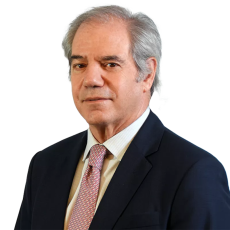How would you explain the quality of Argentina’s legal system to someone considering investing in the country, both currently and historically?
Argentina does not face fundamental issues with its laws; the country’s Constitution, Civil Code, and Commercial Code are all robust. However, there are some pending reforms, particularly in labor and tax laws. The problem lies not in the legislation itself, but in enforcement. Over the years, government interventions and overregulation have made it difficult for businesses to operate smoothly, as is the case in other countries.
The judiciary faces issues with capacity and, in some areas, the values of judges, especially in more complex cases involving shareholders, investments, or sectors like mining and energy. However, in civil and commercial sectors, things are generally in better shape. The legal system suffers from delays, with cases taking far too long to resolve, which often leaves businesses in a state of uncertainty. These challenges are slowly being addressed, but it will take time. The ultimate goal is reforming the labor market and taxes to modernize the economy, which will require further political support, particularly after upcoming elections.
How do these challenges affect future investments in Argentina? Do you see a path to improvement?
While Argentina’s legal and regulatory framework poses challenges for businesses, some sectors, such as mining and energy, are still seeing steady growth due to their inherent characteristics and the nature of the industry. These sectors can thrive even with less-than-ideal legal conditions because investors often find alternative mechanisms to protect their investments.
The government’s current focus is on stabilizing the economy and reducing regulations that have hampered business activities in the past. This is slowly improving the investment climate. However, the real game-changer will be the removal of currency controls (the "cepo") after the elections. This will unlock capital and likely lead to an influx of investment, allowing Argentina to transition from a frontier market to an emerging market, which in turn will reduce its risk premium and enable it to refinance its debt.
You mentioned the use of the RIGI mechanism. Do you think it provides a sufficient guarantee for investors?
The RIGI mechanism offers long-term legal stability that many investors seek. It ensures predictability, access to foreign currency, and protection from sudden regulatory changes, providing more security than Argentina’s domestic legal framework typically offers. While the RIGI system is not ideal, it has been a catalyst for some of the major projects underway in Argentina, such as large energy projects, because it gives investors the certainty they need to proceed.
However, the issue lies not only in the national framework but also in regional and local regulations. Often, provinces or municipalities impose additional taxes or restrictions, complicating matters for businesses. Despite these challenges, the RIGI framework has proven effective in securing large-scale investments, especially in sectors like energy and mining, which require substantial capital over long periods.
Is Argentina on track for sustained and significant investment, despite the economic challenges?
Yes, I believe Argentina is heading in the right direction. Despite political differences and the varying strategies of different administrations, the country’s economy is undergoing a reconfiguration. The agricultural sector, historically the backbone of Argentina’s economy, is poised for further growth with increased efficiency. However, other sectors such as mining and energy, particularly copper and lithium, have also emerged as significant contributors to the country's future.
Argentina's vast mineral resources, especially in copper and lithium, position the country for long-term success in the global market, particularly in industries like artificial intelligence, digitalization, and energy storage. Argentina’s challenge is navigating the transition period, but I am confident that if the political system remains stable, the country’s economy will grow substantially, with potential exports reaching billions of dollars in the coming decades.
How does Marval O'Farrell Mairal stand out as a leading law firm in Argentina?
Marval O'Farrell Mairal stands out due to its strong reputation, built on nearly a century of legal excellence. The firm places a high value on talent, with many of its lawyers going on to hold influential positions in major companies across Latin America. Argentina has a rich tradition of producing highly skilled legal professionals, and Marval has consistently attracted the best talent.
The firm has adapted to changing times, embracing new technologies like artificial intelligence and digitalization to stay competitive in the evolving legal landscape. We focus on providing the best service to clients, ensuring that we’re always ahead of the curve in terms of legal expertise. Marval’s approach is centered around passion for the law, placing clients first, and a constant commitment to improvement. This dedication has helped the firm maintain its leadership in Argentina’s legal market, even in the face of economic challenges.
What role does Marval play in advising international clients, and what makes your approach distinctive?
Marval plays a crucial role in advising international clients entering or operating in Argentina. With a presence in New York, Uruguay, and other locations, we have a global reach and understand the specific needs of international businesses. Our firm is particularly known for its deep understanding of Argentina’s legal system and its ability to navigate the complexities of local regulations, which is invaluable for foreign clients looking to establish or expand their operations in the country.
Our reputation for providing practical, actionable legal advice, combined with a strong network of international partners, makes us a go-to firm for global clients. Our focus on building long-term relationships with our clients and maintaining a high level of service ensures that we remain a trusted advisor in Argentina and beyond.
What does the future hold for Marval and the legal profession in Argentina?
Looking ahead, Marval is well-positioned to continue leading Argentina’s legal sector. We’ve consistently adapted to the changes in both the legal landscape and the economy. The firm is evolving, staying competitive by embracing technology and innovation, and ensuring that our lawyers are trained to meet the challenges of the future.
For Argentina’s legal profession, the future will depend on maintaining high standards of professionalism and adapting to global trends. As the country stabilizes politically and economically, there will be more opportunities for Argentine lawyers and firms to play an increasingly prominent role in global legal markets, particularly in industries like energy, technology, and mining. Marval will continue to be at the forefront, leading the way in providing top-tier legal services to both domestic and international clients.





